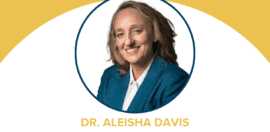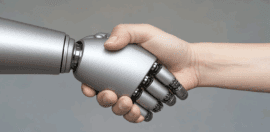From Forensics to enriching the lives of disadvantaged children in Thailand

11 August 2023 at 9:00 am
Peter Baines OAM is one of Australia’s most effective ‘Socialprenuers’. A former police officer, he is the founder of the well known charity ‘Hands Across the Water’, and as such has created opportunities for hundreds of children in Thailand. Peter’s humanitarian work has been recognised with significant national and international awards. Read on for our interview with Peter!
Describe your career trajectory and how you got to your current position.
Well it certainly wasn’t an obvious one. I spent 22 years working within the Forensic Services Group of NSW Police, investigating scenes of major crime, homicides, suspicious deaths, and related matters. It was my expertise in the forensic field that initially saw me deploy to Bali after the bombings and then to Thailand following the Boxing Day tsunami to lead the international teams in the forensic identification of the bodies that were recovered.
After my work in Thailand I was seconded to Interpol in Lyon, France, to lead an international counterterrorism project focused on Chemical, Biological, Radiological and Nuclear threats. There I would write a classified paper that looked at the threats and trends around this area of terrorism on a global level.
My International work would continue with time spent with the United Nations Office of Drug and Crime in South East Asia and additional International deployments into the Kingdom of Saudi Arabia and Japan following natural disasters to hit those countries.
The biggest change came when I met a group of children living in a tent in the Takua Pa region of Thailand, all having lost their parents to the Boxing Day tsunami. Upon meeting the children I realised I couldn’t change what had happened, but it was within my capacity to change what happened next. I formed the Australian charity Hands Across the Water, with the view of meeting the needs of the children left without parents following the tsunami.
What does this role mean to you?
It means two main things. The first is that if we do our job well we will create a life of choice for the kids and communities we support rather than one of chance. The second is that by providing access to education and meaningful employment we wont see second generation kids as part of the homes that we run. I see my job as enabling the amazing staff we have in Thailand to meet the needs of the kids and here at home to support those undertaking the fundraising efforts to ensure our kids have the choices they deserve.
Take us through a typical day of work for you.
Right now it feels like we are very much back to where we were pre Covid, at least from a travel perspective. I find myself traveling domestically and internationally once again on a weekly basis. This might be speaking at conferences sharing insights and learnings out of my new book, Leadership Matters. It might be on a plane to Thailand in support of the various projects we have running, or it might be leading one of our multi day shared experiences from the back of a bike seat that we run throughout the year in Thailand.
If I am not traveling somewhere, I will be working with our team on the next fundraising initiative, sitting in board meetings or trying to contact as many sponsors I can to thank them for their support of the work that we do.
What has establishing Hands Across The Water taught you?
Not to let perfect be the evil of good. I was incredibly naive when I started Hands and some may argue that nothing has changed. But the one thing I know is that if I had waited until I had all of the answers to all of the possible questions before I started, I never would have started. We can be intimidated by the scale of the success of others and therefore hesitate in starting our own journey. But if we wait until the time is right, that time might never come. So I guess the biggest learning in establishing Hands, is that the most powerful and meaningful thing I did was just to start.
What is the biggest challenge you’ve encountered in your career, and how did you overcome it?
Without question it was the impact of the pandemic. None of us could have foreseen the impact nor the duration that it would have. The challenge for us at Hands and therefore something I felt personally responsible for was that we had become a very successful events based organisation which was to our detriment when we could no longer run the international events which had returned us so much.
At Hands we lost approximately 75% of our income through our commercial activities and fundraising initiatives. I personally lost my entire source of income and we would lose the Australian team who supported us. But the kicker to all of this was there was no change to our operating expenses in Thailand. But with challenge comes opportunity and it is one of the things I hold high with pride is that despite the depth and breadth of the economic impact we felt at home, there was no reduction in services in Thailand. None of the kids experienced a decline in the standard of care, all of our uni kids remained fully funded and all of our staff remained in employment.
If you could go back in time, what piece of advice would you give yourself as you first embarked on your career?
Don’t get too caught up in the emotion of those who say they will, but then don’t. I experience it on a personal level with people who, and I can only assume it is with good intent at the time, make promises and commitments to do something in way of support of our initiatives and then don’t. I have become sceptical of the big promises and I can deal with that. I find it more troubling when I bear witness to people making promises to our directors and kids in Thailand and then fail to live up to those promises.
How do you stay motivated to work in this field?
It can be hard, it can be real hard. I feel the sense of responsibility of raising the $2m a year that we need and when we fall short I take that personally. So it would be wrong to assume I am always motivated or that I love what I do day in day out. There are plenty of days when it is a tough grind and I would happily hand it all over to someone else. But that normally doesn’t last too long and time on the ground in Thailand, is the motivation I need. Increasingly these days I find that motivation in the kids whom I have witnessed go from young kids to uni graduates and now adults. I enjoy the opportunities to sit around over a meal with the older kids. Their journey and their growth into amazing humans is the motivation that keeps me going.
How do you unwind after work?
I find peace and reward running on the trails in the bush that surrounds our farm in the Capertee Valley of NSW. For the last five years I have been running a couple of ultra marathons a year and the training required to undertake and compete in those forces me to tie on the running shoes and head out for hours on end. I find it both therapeutic and meditative.
What’s your new book, Leadership Matters, about?
My new book is divided into three parts. Leaders, Achievers and Visionaries. It is filled with stories that I have accumulated over the last decade or so and addresses issues which I believe are relevant and current in the challenges leaders face today. It is about courageous leadership, it is about leaving an indelible impression on those we work with, it is about living a resilient life and not letting yesterday define your tomorrow and why we need to step towards taking on risk rather than rejecting it.
It is my third book and by far it was the most enjoyable to write and I hope that translates for the readers into something they enjoy as well. In writing the book it gave me reason to pause and reflect on some remarkable leaders in my life and how living a life of service as they have, they in turn have positively impacted the lives of so many people.
What was the last thing you: Watched, Read, & Listened to?
Better Call Saul is a series on one of the streaming sites that I started watching in my travels in Thailand. But it wasn’t on the same streaming service back in Australia so I would binge watch at the end of each day on the recent bike ride back in Thailand, picking up from the last episode during my travels.
After a long hiatus, for no particular reason, I have a John Grisham novel on the go with the next one ready to replace the last. I question myself why I stopped. It’s an enjoyable break from screens and phones and I only read books in hardcopy. Not a fan of reading on a iPad or similar, feels too much like work.
The drive from our home at Terrigal on the Central Coast to our farm in the Capertee Valley is a good three hours and a decent chance to consume some great podcasts. The Outperformer is a great listen and its host Brad Eisenhuth is a natural interviewer who has a really relaxed and engaging manner about him.







